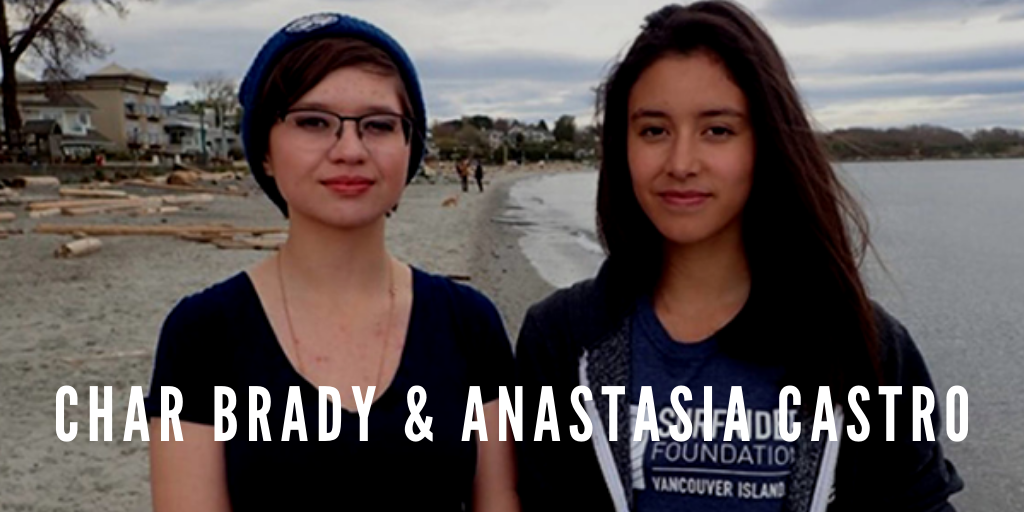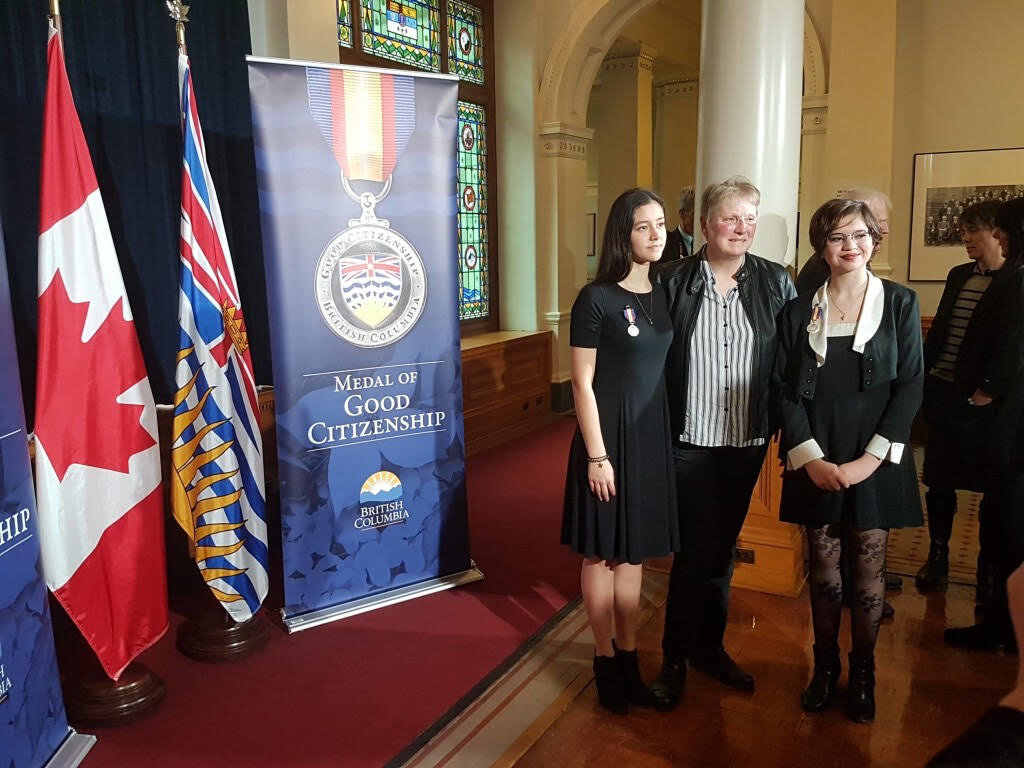
CHARLOTTE BRADY, 17 & ANASTASIA CASTRO, 17
HOMETOWN: VICTORIA, BRITISH COLUMBIA / LEKWUNGEN TERRITORY (NOW KNOWN AS SONGHEES AND ESQUIMALT FIRST NATIONS)
We all have that first memory leading us to take action towards a sustainable and equitable future. For Anastasia, it was the documentary “Shark Water” in her seventh-grade science class that changed the course of plastics pollution for her and Charlotte.
Through presentations in front of several city councils, they successfully gained the support and resources to mobilize their plastic bag ban into an actionable plan. These efforts cascaded into local schools, enabling their peers to get more actively involved.
These students designed a reusable bag with their town name on it, catching the attention of local media. They took their media coverage to public education and petition-signing events for the Vancouver Island chapter of the Surfrider Foundation. Through additional media interviews with local papers, TV and radio stations, their message became part of the civic discourse.
In December 2017, their hard work culminated in a by-law that passed Victory City Council. Although this decision has been in B.C courts, this work as a blueprint for other municipalities around the province to amend and follow. The District of Saanich successfully passed their plastic bag ban by the BC government this month.
Their influence landed them at the Victoria 2019 STEM conference as speakers. Anastasia and Charlotte provided their tools for change by giving workshops to students. In April of 2019, Anastasia presented a proposal to the Ministry of Education to send out a package to all British Columbia schools about single-use plastics.

The by-law was one accomplishment, but empowering the local stores to do resist the temptation of plastic bags in an actionable way was another. They moved to the next phase of their plan – to source the reusable bags locally and provide them to stores.
By enforcing a charge on plastic bags, the funds collected paid for reusable bags and a public education campaign. The strategy included gradual increased fees for plastic bags, while providing sufficient notification to the public of when plastic bags will no longer be given out.
The time spent with local businesses on weekends and after school was well worth it for the news of bag bans in Victoria, Saanich, Esquimalt, Oak Bay and Vancouver. They started with Thrifty Foods and Mother Nature’s on Cook St. convincing them to give out reusable bags for several months before moving to a charge.
These two young leaders have shown that they can speak effectively to people in positions of power during a time where there was little public concern about the issue. It takes great work ethic and resolve to move a community in the direction of sustainable practices. Having proven themselves, Anastasia and Charlotte will continue on the path, doing whatever it takes, to make positive changes for the good of our planet.







